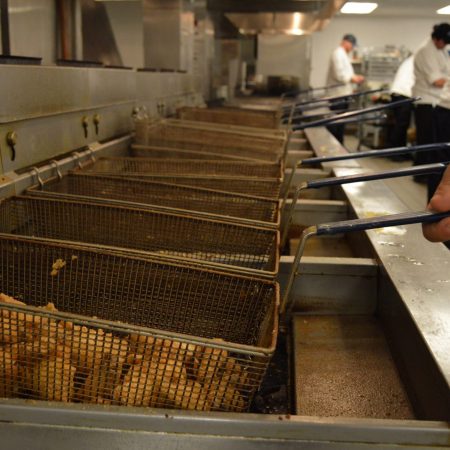Detroit Evening Report: New livestock ordinance will allow residents to keep chickens, ducks and honeybees
Tonight on The Detroit Evening Report, we cover a new livestock ordinance, potential changes to the minimum wage and more.
Subscribe to the Detroit Evening Report on Apple Podcasts, Spotify, NPR.org or wherever you get your podcasts.
New livestock ordinance passes
Detroiters will soon be able to keep animals on their property.
The city council voted on a new livestock ordinance today that outlines the type of livestock that could be allowed in the city. Residents will soon be able to keep chickens, ducks and honeybees on their property.
Some animals will have to be tagged and have health records. Owners will need to apply for a license to keep the animals and pay an annual fee. Wild animals are still banned.
City Council passed the new ordinance in a 5-3 vote during today’s formal session. It goes into effect Jan. 31, 2025.
WDET’s Bre’Anna Tinsley contributed to this report.
Minimum wage changes
A State House bill would keep the lower minimum wage of just under four dollars an hour for tipped workers. If that bill does not pass, within about five years, a new law will require restaurants to pay tipped workers the regular minimum wage.
Democratic Representative Nate Shannon introduced the bill and says some restaurants could close if the higher wage law goes into effect and workers could lose their jobs.
The labor group One Fair Wage opposes Shannon’s bill. It says restaurant workers deserve a regular minimum wage plus tips.
Foreclosure prevention
Detroit City Council member Coleman Young II is hosting a virtual meeting focused on property taxes and foreclosure prevention on Wednesday, Nov. 13. Wayne County Treasurer Eric Sabree and Willie Donwell from the Board of Tax Review will participate. The meeting is scheduled for 5-6 p.m., and residents can register to attend by calling 313-224-4248.
November science events
The Michigan Science Center’s November offerings include an exhibit of life-sized dinosaurs, Black Friday membership deals and a hands-on paleontology event. For more information about upcoming events, visit mi-sci.org.
Lego League volunteers needed
The organizers of this year’s First Lego League Challenge Qualifier are looking for volunteers. The event invites Lego robotics teams from throughout the area to compete at the Michigan Science Center on Saturday, Nov. 23. Volunteers may act as competition judges, referees, field resetters and fill other roles at the annual event. To register as a volunteer, visit firstinspires.org.
Do you have a community story we should tell? Let us know in an email at detroiteveningreport@wdet.org.
Trusted, accurate, up-to-date.
WDET strives to make our journalism accessible to everyone. As a public media institution, we maintain our journalistic integrity through independent support from readers like you. If you value WDET as your source of news, music and conversation, please make a gift today.
The post Detroit Evening Report: New livestock ordinance will allow residents to keep chickens, ducks and honeybees appeared first on WDET 101.9 FM.



